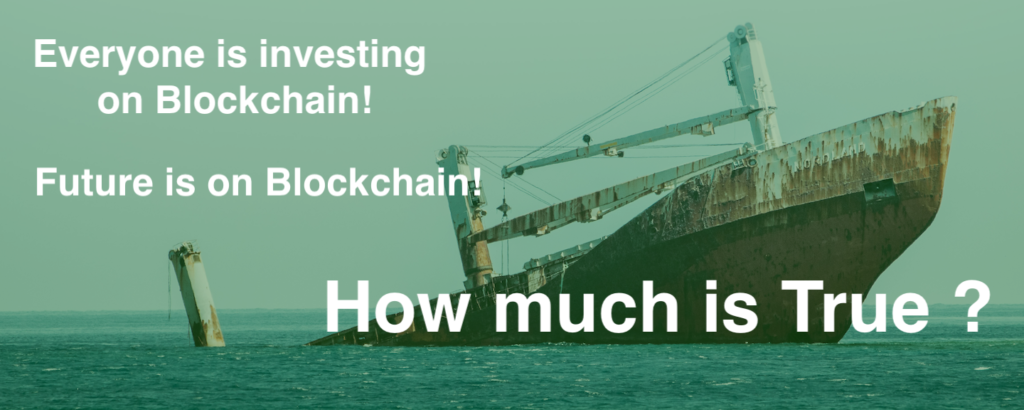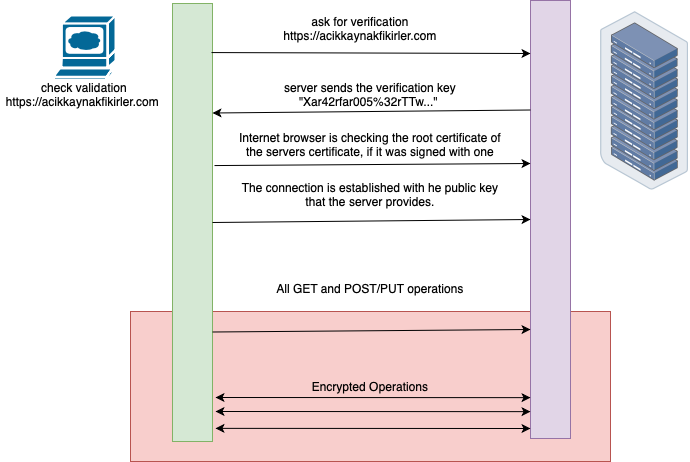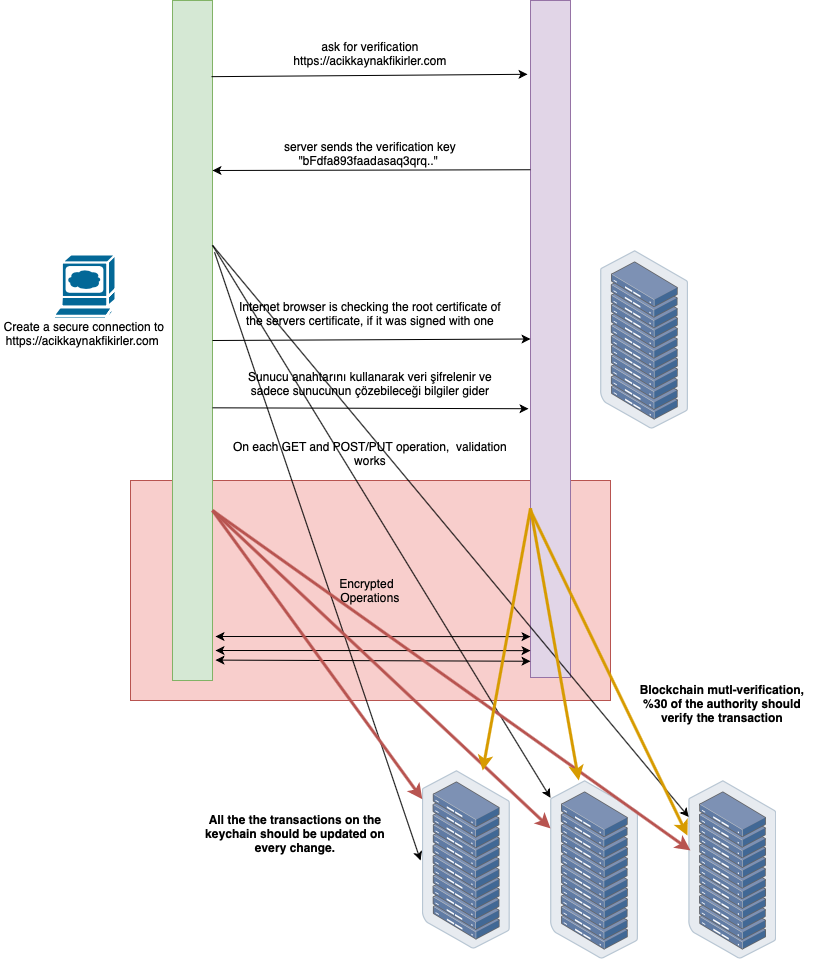What is blockchain?

Everyone has got very excited about the early period promissory about the blockchain.
It supposed to break all the blockage between the industrial participants with one step, to create an almost quarrelsome substructure against fraud, and would have significant provided add value and profit to its’ investor.
But the expected did not happen!
Even though, all the noise that many establishments made all at once and having press statements which have told it is “The Last Technology that will Change the World,” because of the untold truths about blockchain more than the %90 of the projects have failed.
The average life of blockchain related establishments endured a little more than one year.
For an objective eye, it explicit that blockchain technology has more ways to go to get developed. Yet in the posts released on media, you can still read compliments as “A Technology that has grown more success” or critics that are very soft.
Because of thousands of companies invested in Blockchain Technology by trusting their CEO, CIO, and CTO, and stating the obvious has the power to move the mountains smoothly from their places in these companies.
Indeed the ones direct CIO and CTO’s are the research companies like Gartner, Forrester, etc. Those companies positioned Blockchain Technology as a future technology severely between the dates of 2015 – 2017 in their thousand dollars “exclusive” reports that they have prepared.
Now, the same Forrester emphasized that a series of “myths and misunderstanding” resulted in a counsel of perfection. They explained these myths one by one within “their pragmatic and realistic incidence choice” in a report dated April 2020, which is prepared “to help technology leaders escape from traps related to blockchain.”
Even Gartner gives place to Practical Blockchain between 10 strategical technology announced for 2020; I would like to draw attention to the “Practical” title. Because in the report remarking that blockchain needs to continue to improve to corporate use because of a series of technical issues.
In its article that examines the reasons for the failure of blockchain, Forbes, as a final say, points out the chaos of technology as the most crucial reason. If blockchain is a technology that creates an accretion value, it has to be kept as simple as possible.
Complex, Unwieldy, with all Very Expensive Technology
I agree with that, sincerely. Complexity is the enemy of reliability and simplicity. Today, most of the searches done on Google are related to understanding what blockchain technology is and how it works.
The people do that search are not so wrong. To write a small technical investigation related to that technology comprehensibly is in quality of being challenging to all World’s language.
As you know, high secured encrypted is the essential value that blockchain presents. But, while you can do encryption operation already with SSL within two lines code, blockchain does it with hundreds of lines.
I want to indicate two simple schemas to describe blockchain technology.
Every day, by entering the pages as “https://” on the internet , we are safely doing data verification. This operation is happening with SSL. Complexity within the technology is described as below;

Now let’s try to do the same mechanism with blockchain infrastructure instead of SSL;

As we see, if blockchain has been used instead of SSL Technology, which has been used for 25 years, the structure will get more complicated and unwieldy.
Here the argument against can tell that blockchain is more secured then SSL. That is correct. However, a 2048 bit encrypted SSL password has not yet been cracked, and it is also not possible.
Because for the quantum computers to solve the password takes 25 years, and for today’s best computer to decrypt takes 300 trillion years. (4096 bit)
Consequently, the encryption system we have for now is highly adequate and understandable.
There is also an economic aspect of the topic. If we have done the data verification through blockchain, then instead of thousands, there would have been just a couple of online shopping sites that we can shop easily.
Connecting to the internet from the device we want, would need a number of establishments that could not cover the cost of those infrastructures.
Blockchain consumes much operational power when it is compared with traditional secure data exchange.
For example, every bitcoin operations work through blockchain use approximately 657 kWh electricity. That is equal to 59 days of electricity usage of an average British household.
I think I don’t need to explain the gravity of the situation in the countries which have astronomically expensive electricity as in our country.
Besides, this situation leaves it both slow and deficient in terms of environmental sustainability expected by modern technologies.
Where is the future of Blockchain?
Despite this negative portrait, I don’t think Blockchain technology will disappear. In the next 20 years, there are five topics that I believe will be dominated by blockchain.
1.The fight against money laundering
The high security supplied by blockchain, offers so much to prevent money laundering and international monetary policy.
But by turning the point, let’s think that criminals who try to launder money create their blockchain. In this case, the fact of blockchain becoming a weapon against the efforts for preventing that crime can come into a question.
2.Fake news and verification of media.
Before the 2020 USA Presidential Election, there are warning reports against fake news, videos, and photos that can misguide even the most skeptical minds.
Some of these reports are expecting the solution to be offered for this issue by blockchain.
However, big media companies have invested in their own blockchain. It seems that the fake news will stay in their own blockchain.
3.Digital Identity
In the 21st Century, identity means more than your name, fingerprints, social security number, and even your passport.
The electronic footmarks you left with your credentials, online banking account, etc., the data collected through your online behavior now has become a part of your identity. Governments and companies are using those pieces of information.
In many countries, the use of blockchain is in discussion in verifying elections, tax collection, educational information, and citizenship situation. I believe this topic will get intense in a couple of years.
4.Cryptocurrency
Electronic currency is an old new, Venmo, Zelle, and Digital wallets are in everywhere.
In the USA, there are thousands of Bitcoin ATM and Coin Kiosks, and companies as Microsoft, Subway, and Overstock accepts the payment within digital currency.
In the meantime, Turkey aside, it is evident that daily cryptocurrency is a niche for even to the USA.
The Libra attempt of Facebook being wished to be a catalyst to adopt to cryptocurrency didn’t happen as a result of densifying of the government investigation. Facebook started a traditional payment method (Facebook Pay).
Governments reaching a consensus about how to classify or regulate the Cryptocurrencies and clarify categorizing them is needed.
5.Decentralized Internet (Client, Server)
Nowadays, internet serves through services that are shared on servers.
Your mobile phone or your laptop displays services as a client. To be able to reach servers, DNS and IP infrastructure is needed. Plus you need a medium to serve the data.
To provide redundant and also scaleable results there are firewalls and load balancers before the servers so the load can be shared.
Yet, in today’s Microservice based architecture, there is no need for other hardware, for operations like load balancers, firewalls. This situation will get more standardized in the following years.
My prediction is that, other people’s data will be able to keep on the mobile phones or small devices that we clients use.
On decentralized internet, everyone will be an internet provider. The interaction between the server and the client will turn into “Client”–> “Several Client” and vice versa.
There are some requirements for that to happen.
These requirements are;
- Having the speed of internet like 5G or beyond
- Blockchain derivative hash-based multiple data encryption
- Mobile devices being more Liberized/OpenSource
- Microservices’ (Kubernetes) ability to solve this kind of issue as a software. I see K3S a perfect candidate for that
Let us give a simple example,
To view a photo on any website (https://xyz.resim.com) in today’s internet environment, you must have a central server open to the Internet, a valid IP address, and a DNS record.
In decentralized Internet, you can reach the same photo via your mobile phone again through the website as https://xyz.resim.com. However, the pieces of photos come from different mobile phones or devices.
As decentralized and in pieces, they stay on little servers (other clients). Your mobile phone or your computer are having an image by combining these pieces.
I don’t think this kind of internet will happen soon. But it can easily be foreseen that it will be a technology capable of redistributing of cards.